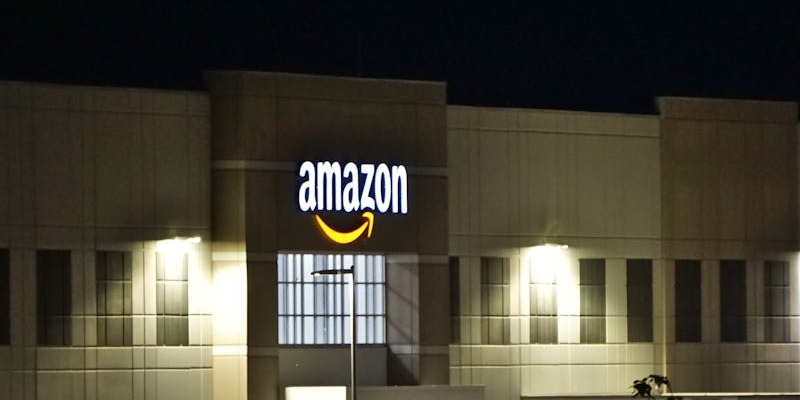In a significant move to bolster its warehouse automation capabilities, Amazon has announced a strategic acquihire of talent from robotics software developer Covariant, integrating Covariant’s founders and about 25% of its staff into Amazon’s Fulfillment Technologies & Robotics team. This strategic acquisition mirrors Amazon’s long-standing commitment to enhancing its warehouse operations through advanced technologies, a journey that has been ongoing since its pivotal 2012 purchase of Kiva Systems. This earlier acquisition had revolutionized order fulfillment by introducing robotic automation, significantly improving operational efficiency.
Covariant specializes in developing advanced Artificial Intelligence (AI) models that empower robots with the ability to ‘see, reason, and act’ within their environment. This cutting-edge technology is already employed by notable clients including Otto Group, Radial, and McKesson Corporation. By acquiring Covariant’s talented workforce and integrating their innovative technologies, Amazon aims to take its warehouse automation to the next level. The move is not limited to personnel; Amazon has also secured a nonexclusive license for Covariant’s foundational robotic models, a step that will further support the development and refinement of Amazon’s in-house automation technologies.
Expanding Automation Capabilities
The integration of Covariant’s team and groundbreaking AI technologies into Amazon’s Fulfillment Technologies & Robotics division signals more than just a talent acquisition. It represents a strategic push to incorporate sophisticated automation solutions that can significantly optimize warehouse operations. Although the specific financial details of the deal remain undisclosed, the anticipated impact on Amazon’s automation capabilities is substantial. The augmented expertise and insights from Covariant’s team are expected to play a crucial role in propelling Amazon’s automation projects forward.
Amazon’s emphasis on automation is not an isolated endeavor but part of a broader, concerted effort to leverage advanced technology across all facets of its operations. This strategy is exemplified by other initiatives, such as the recent launch of Amazon’s Prime Air drone service in the UK. Approved by the UK’s Civil Aviation Authority, this service aims to test drones for rapid package deliveries, showcasing Amazon’s relentless pursuit of innovation in logistics. The synergy between Covariant’s AI capabilities and Amazon’s expansive logistical network could set a new standard in efficiency and speed for the broader e-commerce industry.
Long-term Strategic Benefits
Amazon’s acquihire of Covariant talent and the associated licensing agreement are expected to yield long-term strategic benefits. By securing access to Covariant’s robust robotic models, Amazon can refine and tailor these solutions to meet its specific operational requirements. The fusion of Covariant’s cutting-edge AI models with Amazon’s vast logistics infrastructure promises enhanced agility in order processing, thereby reducing turnaround times and increasing overall efficiency. This initiative aligns seamlessly with Amazon’s goal of continually advancing its logistical capabilities.
The acquisition also has broader implications for the e-commerce industry, setting a precedent for how technology can be leveraged to streamline supply chain operations. The integration of AI-driven robotics is not just a quest for operational excellence but also a powerful differentiator in a highly competitive market. Amazon’s ability to integrate these advanced technologies positions it uniquely to respond to the growing demands of e-commerce, ensuring quicker deliveries and higher levels of customer satisfaction.
Conclusion
In a strategic move to enhance its warehouse automation, Amazon has announced the acquisition of talent from robotics software developer Covariant. This integration will see Covariant’s founders and about 25% of its staff joining Amazon’s Fulfillment Technologies & Robotics team. This move aligns with Amazon’s ongoing commitment to improving warehouse operations via advanced technology, a journey that began with its 2012 purchase of Kiva Systems. The Kiva Systems acquisition revolutionized order fulfillment by implementing robotic automation, greatly boosting operational efficiency.
Covariant specializes in creating sophisticated Artificial Intelligence (AI) models that enable robots to "see, reason, and act" within their environment. Their cutting-edge technology is utilized by high-profile clients such as Otto Group, Radial, and McKesson Corporation. By bringing Covariant’s skilled workforce and innovative technologies onboard, Amazon aims to further elevate its warehouse automation. Additionally, Amazon has secured a nonexclusive license for Covariant’s foundational robotic models, ensuring that these advanced technologies will support and enhance the development of Amazon’s in-house automation systems.

